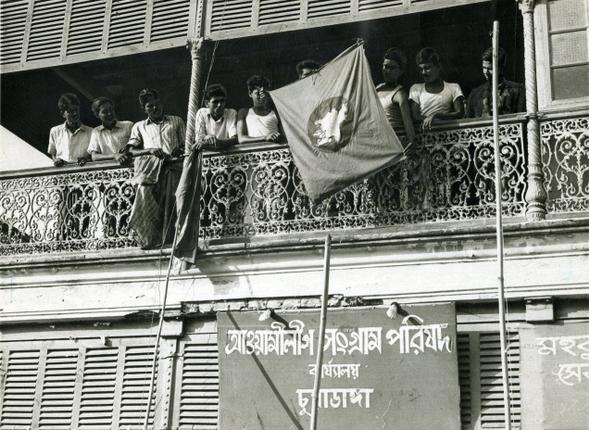Published in The Hindu on Sunday, 28 February 2016
BOOK SCAN
Forty-five years ago, just like yesterday
Lincoln Chen

Rehman Sobhan captures in riveting detail the political, social and human drama of the birth of Bangladesh.
On January 20, 2016, Amartya Sen, launching Rehman Sobhan’s book, Untranquil Recollections: The Years of Fulfilment, at the National Library in Kolkata, opened with warm remembrances of a Cambridge classmate and lifelong friend. Amartya is very much in the book, providing shelter for Rehman after his escape to India from what was East Pakistan in April 1971.
The birth of a nation
I was an eyewitness to the Pakistani genocide that unleashed the Bangladesh Liberation War. It is this conflict which offers the dramatic context for Untranquil Recollections (Sage, Rs.1,250). As a young Chinese-American doctor assigned by the U.S. National Institutes of Health to conduct research on cholera, I was stationed in Dhaka through the East Pakistan cyclone in November 1970 that killed an estimated half a million people and the Pakistani genocide that was launched in March 1971. In between the two events, the national elections catapulted Sheikh Mujibur Rahman’s Awami League to a parliamentary majority that could not be tolerated by West Pakistan. The army’s brutal military campaign in East Pakistan killed innumerable innocent people, pushed millions of Bangladeshi refugees into India, and precipitated an India-Pakistan war that eventually resulted in an independent Bangladesh.
Untranquil Recollections captures in riveting detail the political, social and human drama of the birth of Bangladesh. Rehman provides a balanced, yet rich description of the politics that led up to the genocide. He had served as an economic adviser to Sheikh Mujib. He was the Dhaka University economist who analysed the “two Pakistani economies”, the disparities that accounted at least in part for the rupture of Pakistan. In the book, he captures the irresistible, unstoppable tide of the will of the Bengali people for nationhood. The key leaders are brought to life, notably Sheikh Mujib as a gifted politician who adroitly balanced fortitude with agility in negotiating with the Pakistani army.
Before he was given sanctuary in India, the author might easily have been killed on two occasions. The Pakistani army arrived at his house to arrest him soon after he had wisely sought refuge elsewhere. During his adventurous escape into the countryside for India, his less-than-perfect Bengali generated suspicion about his identity. Fortunately, Dhaka University students vouched for his bona fides. In Delhi, he was able to tell the Bangladesh story to senior advisers of Prime Minister Indira Gandhi — P.N. Haksar, P.N. Dhar and Ashok Mitra. Debunking accusations that India had fermented the disturbances, Rehman found that the Indian government knew little of the crisis in East Bengal. For the remainder of 1971, he served as ambassador-at-large for the newly forming government; this involved, among other things, lobbying against Richard Nixon and Henry Kissinger through the U.S. Congress with allies like Senators Ted Kennedy and Frank Church.
Three questions stand out. Why does he title the book “the years of fulfilment”? What happened after independence? And how has the author navigated the polarised politics of Bangladesh through the decades?
The last four chapters are titled “fulfilment”: witnessing the birth of a nation; from politician economist to political combatant; envoy extraordinaire; and the liberation of Bangladesh. Bangladesh mattered not only as a newly emerged nation but also as a true struggle for social justice and human rights. The author has strong Bengali roots. His mother’s family were descendants of the Nawab of Dhaka. Educated in Darjeeling, Lahore and the U.K., he returned to Dhaka University in order to reaffirm his Bengali identity. His first wife Salma Sobhan, whom he courted at Cambridge, was a distinguished feminist lawyer. After her death, he married a leading political scientist, Rounaq Jahan. Rehman’s son Zafar Sobhan is today the editor of the newspaper, Dhaka Tribune, which aims to be the platform for the “new voice and new vision” of a younger generation of Bangladeshis.
So what happened after independence? In the new country, Rehman Sobhan became one of Sheikh Mujib’s four members of the Planning Commission, crafting the new Bangladesh economy towards a new socialism that never reached its destination. He also led a host of national institutions — as Chairman of the Bangladesh Institute of Development Studies, Chair of the Grameen Bank that was founded by Nobel Peace Prize laureate Muhammed Yunus, and the founding Chair of the Centre for Policy Dialogue. His leadership focussed not only on equitable development in Bangladesh but also on fostering South Asian cooperation, economic as well as political.
Perhaps the toughest question of all: how did the author stay above the vicious partisan politics of Bangladesh? That Bangladeshi national politics is dysfunctional is well recognised. Rehman Sobhan, lacking grand ambition, successfully stayed above the Bangladeshi political fray while commanding respect across the political spectrum. The book provides insights into how he has achieved personal equanimity.
Untranquil Recollections is a fine read. It takes us through a personal journey capturing human drama in a tumultuous period of history.
(Lincoln Chen, formerly Takemi Professor of International Health at Harvard University (1987-1996), served with the Ford Foundation in Bangladesh (1973-1980) and India (1981-1987).)


